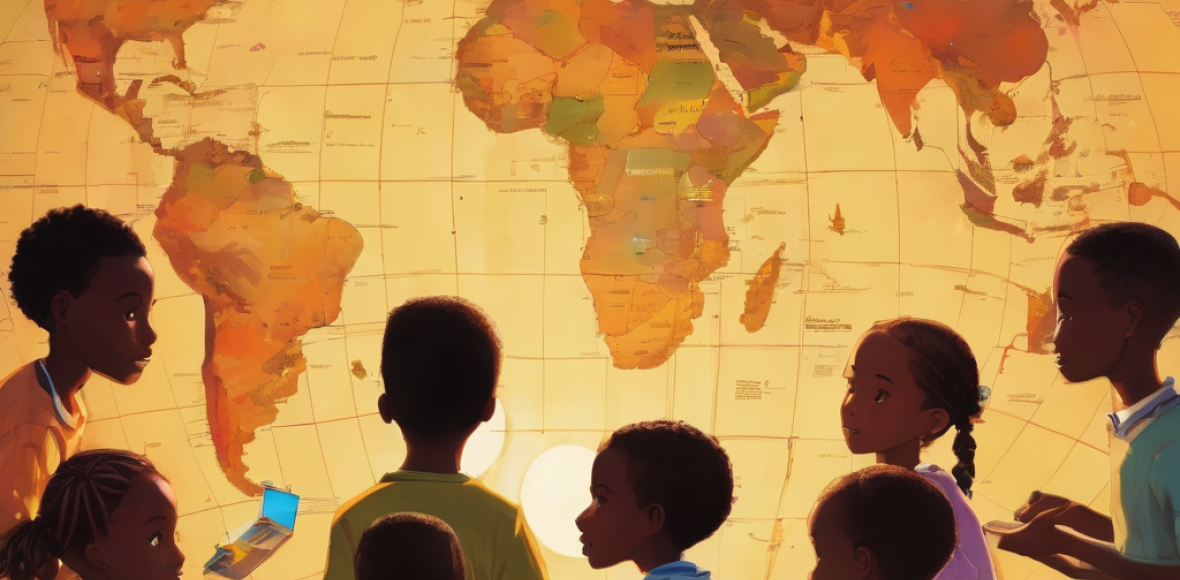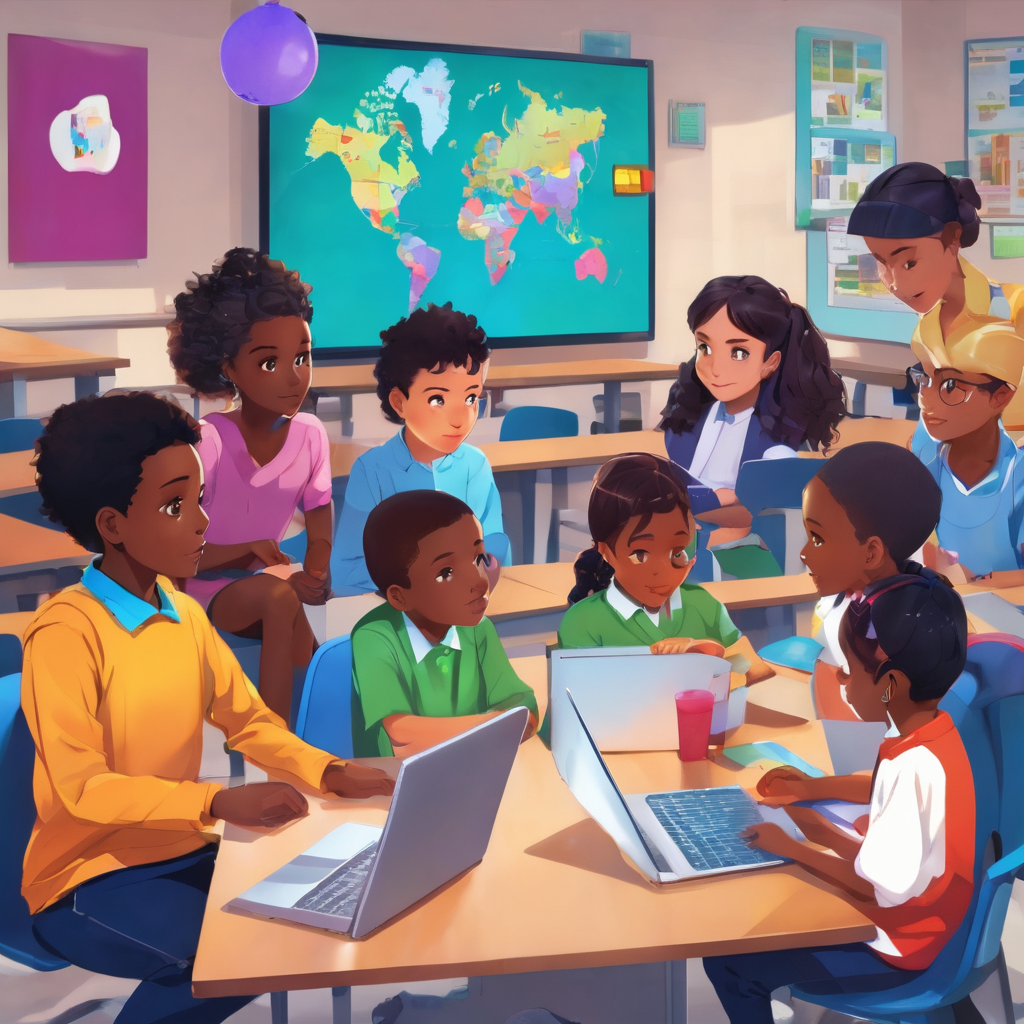
An unsettling reality persists in the era of artificial intelligence, where the digital revolution has taken over our lives. Africa, a continent with untapped potential, is frequently left out of discussions about global AI policy. It goes beyond the digital divide, poor infrastructure, or the economic inequalities that plague many African countries. It concerns the significant disparity in the global AI scene, which has muffled the voices of the most defenseless and young people on the continent: Africa’s children.
Africa’s children are becoming digital pioneers, living in a world where smartphones and AI-powered gadgets are as ever present as the air they breathe, starting from the busy streets of Kenya to the peaceful villages of Malawi.
As children make their way through a digital slum populated by social media, educational apps, and online gaming, they join a broader AI ecosystem. However, in the vast hallways of international AI policy-making, their particular needs, vulnerabilities, and experiences are frequently overlooked.
Privacy is a luxury in the digital age, and children’s personal information is no different. In the era of artificial intelligence, Africa is struggling, along with many other regions, to protect children’s personal information. Regulations like the Children’s Online Privacy Protection Act (COPPA) in the United States and the General Data Protection Regulation (GDPR) in the European Union set a foundational framework, but the question remains – how do we ensure Africa’s children are equally protected in this digital wilderness?
Age-appropriate design is another missing piece of the puzzle. Children require an online environment that caters to their unique developmental stages, cognitive abilities, and digital literacy levels. A child-friendly interface is more than just a matter of convenience; it’s a necessity to ensure that Africa’s children are safe as they explore the digital world.
The importance of ethical issues cannot be emphasized enough .To safeguard children from potential biases or discrimination, every AI policy decision must be based on the principles of fairness, transparency, accountability, context and non-discrimination. However, this is only a small part of the bigger picture.
It is crucial to give Africa’s young people the tools they need to navigate this digital world. Programs that teach digital literacy can provide them the tools they need to safeguard themselves and make wise decisions. However, the responsibility for protecting children in the digital age does not end with them, parents are essential in this regard. For them to make well-informed decisions regarding their children’s online activities, they require information, resources, and tools.
And this is why over the course of two days, Mtoto Newz International will be having its first ever Children and AI Training event, scheduled for November 9th and 10th, 2023, which will provide a comprehensive exploration of Artificial Intelligence (AI) for children.

Day 1 will cover the basics of AI, its types, applications, and hands-on experience with AI tools. Day 2 will delve into AI’s impact on children, addressing safety, creativity, and future possibilities. The event will conclude with group presentations and a closing ceremony, where participants will receive certificates of completion. This program aims to equip children with essential AI knowledge and responsible usage skills.
Nonetheless, a change is needed. The young people of Africa and the world at large are active participants in AI, not just casual observers. They should have a say in AI policymaking and be given a seat at the table. It is now appropriate to ask for their opinions, hear about their experiences, and confer with organizations that support children. That’s the only way we can make sure that children don’t miss out on the digital revolution.
In order to create an AI environment that is fair and just, we must adopt a global viewpoint. It is not only a question of policy,closing the digital divide is a moral requirement that necessitates group effort. Africa’s inclusion in AI policy-making is a call to uphold the values of justice, inclusivity, and opportunity for all in the AI-powered future, not a gesture of charity. Rather, it is an acknowledgment of the continent’s vast unrealized potential. These young digital pioneers from Africa shouldn’t go unheard in our fight for a more secure, just, and equitable digital future.

Leave a Reply